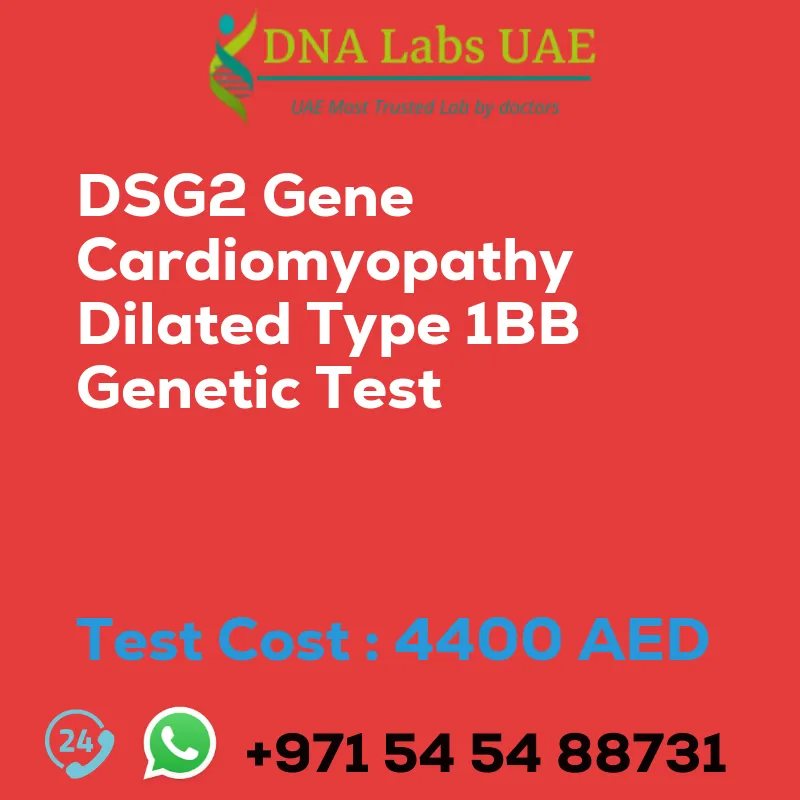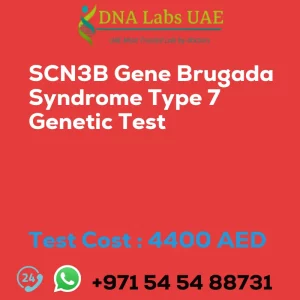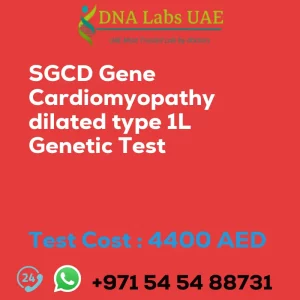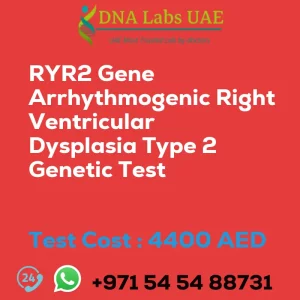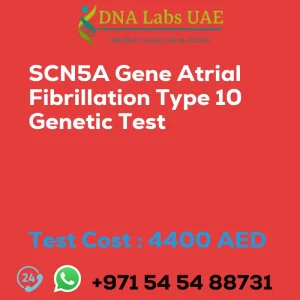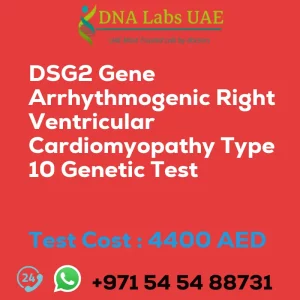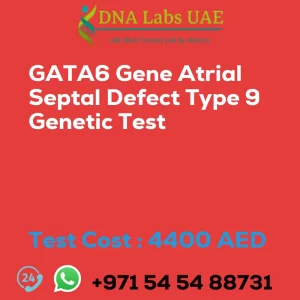DSG2 Gene Cardiomyopathy dilated type 1BB Genetic Test
Test Name: DSG2 Gene Cardiomyopathy dilated type 1BB Genetic Test
Components: NGS Technology
Price: 4400.0 AED
Sample Condition: Blood or Extracted DNA or One drop Blood on FTA Card
Report Delivery: 3 to 4 Weeks
Test Type: Cardiovascular Pneumology Disorders
Doctor: Cardiologist
Test Department: Genetics
Pre Test Information: Clinical History of Patient who is going for DSG2 Gene Cardiomyopathy, dilated type 1BB NGS Genetic DNA Test. A Genetic Counselling session to draw a pedigree chart of family members affected with DSG2 Gene Cardiomyopathy, dilated type 1BB NGS Genetic DNA Test gene DSG2
Test Details: DSG2 gene cardiomyopathy, dilated type 1BB is a type of genetic cardiomyopathy that is caused by mutations in the DSG2 gene. This gene provides instructions for making a protein called desmoglein-2, which is found in the heart muscle cells. Desmoglein-2 is a component of desmosomes, which are structures that help hold cells together. Mutations in the DSG2 gene can disrupt the normal function of desmoglein-2, leading to a weakening and stretching of the heart muscle (dilated cardiomyopathy). This can result in symptoms such as heart failure, arrhythmias, and an increased risk of sudden cardiac death.
NGS (Next-Generation Sequencing) genetic testing is a type of genetic test that can analyze multiple genes simultaneously to identify mutations or variations that may be associated with a specific condition. In the case of DSG2 gene cardiomyopathy, NGS genetic testing can be used to identify mutations in the DSG2 gene that may be causing the condition.
NGS genetic testing for DSG2 gene cardiomyopathy, dilated type 1BB can help with the diagnosis of the condition, as well as provide information about the specific genetic mutation involved. This information can be useful for guiding treatment decisions, as well as for providing information to family members who may be at risk of inheriting the condition.
It is important to note that genetic testing for DSG2 gene cardiomyopathy, dilated type 1BB is typically performed by healthcare professionals, such as genetic counselors or geneticists, who can provide appropriate counseling and interpretation of the results.
| Test Name | DSG2 Gene Cardiomyopathy dilated type 1BB Genetic Test |
|---|---|
| Components | |
| Price | 4400.0 AED |
| Sample Condition | Blood or Extracted DNA or One drop Blood on FTA Card |
| Report Delivery | 3 to 4 Weeks |
| Method | NGS Technology |
| Test type | Cardiovascular Pneumology Disorders |
| Doctor | Cardiologist |
| Test Department: | Genetics |
| Pre Test Information | Clinical History of Patient who is going for DSG2 Gene Cardiomyopathy, dilated type 1BB NGS Genetic DNA Test. A Genetic Counselling session to draw a pedigree chart of family members affected with DSG2 Gene Cardiomyopathy, dilated type 1BB NGS Genetic DNA Test gene DSG2 |
| Test Details |
DSG2 gene cardiomyopathy, dilated type 1BB is a type of genetic cardiomyopathy that is caused by mutations in the DSG2 gene. This gene provides instructions for making a protein called desmoglein-2, which is found in the heart muscle cells. Desmoglein-2 is a component of desmosomes, which are structures that help hold cells together. Mutations in the DSG2 gene can disrupt the normal function of desmoglein-2, leading to a weakening and stretching of the heart muscle (dilated cardiomyopathy). This can result in symptoms such as heart failure, arrhythmias, and an increased risk of sudden cardiac death. NGS (Next-Generation Sequencing) genetic testing is a type of genetic test that can analyze multiple genes simultaneously to identify mutations or variations that may be associated with a specific condition. In the case of DSG2 gene cardiomyopathy, NGS genetic testing can be used to identify mutations in the DSG2 gene that may be causing the condition. NGS genetic testing for DSG2 gene cardiomyopathy, dilated type 1BB can help with the diagnosis of the condition, as well as provide information about the specific genetic mutation involved. This information can be useful for guiding treatment decisions, as well as for providing information to family members who may be at risk of inheriting the condition. It is important to note that genetic testing for DSG2 gene cardiomyopathy, dilated type 1BB is typically performed by healthcare professionals, such as genetic counselors or geneticists, who can provide appropriate counseling and interpretation of the results. |

